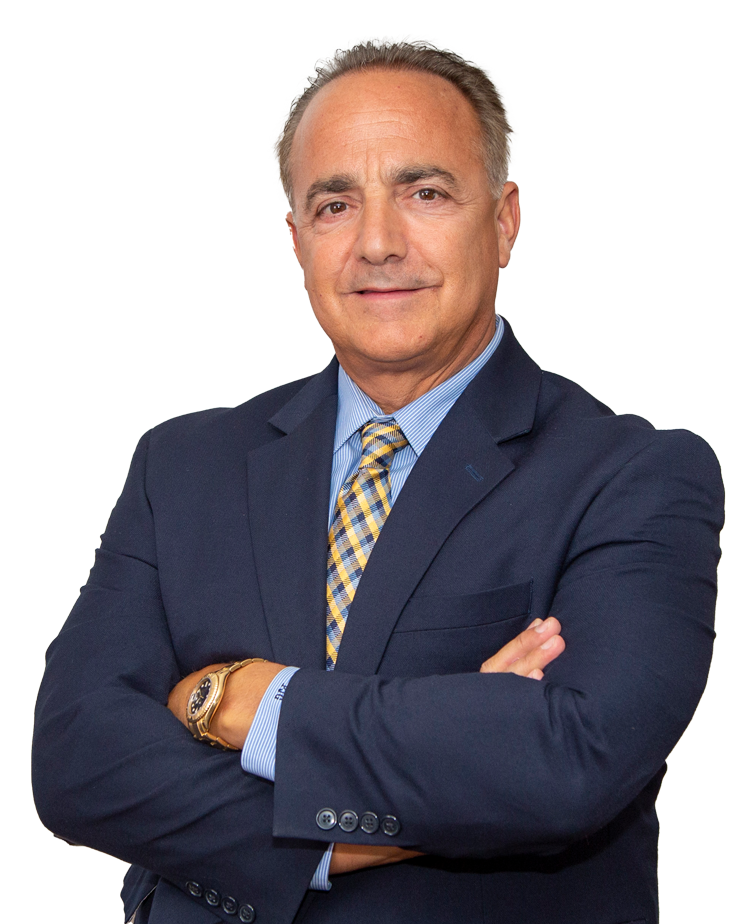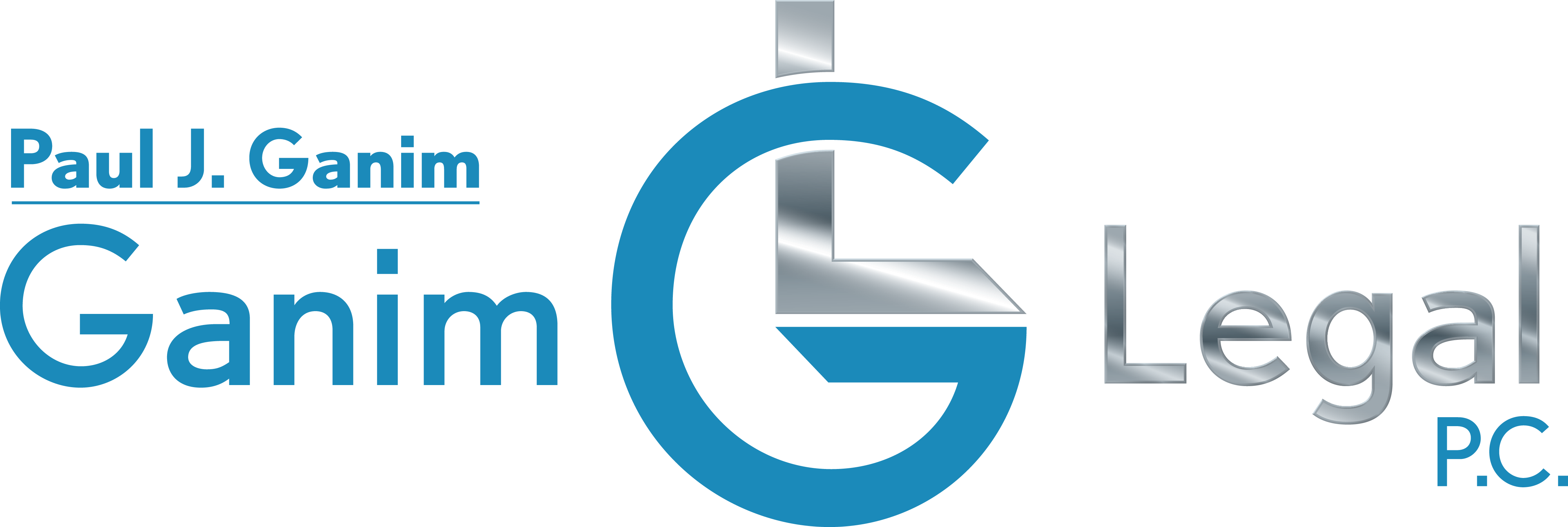When you seek medical care, you place your trust—and your life—in the hands of healthcare professionals. But when that trust is violated through negligence or error, the consequences can be devastating.
In Bridgeport—home to major medical facilities such as Bridgeport Hospital and St. Vincent’s Medical Center—patients rely on their high standard of care.
Unfortunately, when medical errors occur, the consequences can be devastating. These may include:
- worsened health conditions
- The need for additional or corrective treatments
- overwhelming medical bills
- profound emotional distress
Medical malpractice cases are among the most complex in personal injury law. Healthcare providers and their insurance companies fight aggressively to avoid liability, while patients struggle to understand what went wrong and how to prove it.
⚠️ Connecticut’s specific medical malpractice laws create additional hurdles, including certificate of merit requirements and damage caps that can limit your recovery.
At Ganim Legal, P.C., our Bridgeport medical malpractice lawyers level the playing field for victims of healthcare negligence, fighting to secure substantial compensation for those harmed by medical errors across Connecticut.
Reach out today at 475-471-0318 or contact us for a free consultation—our team works with trusted medical experts to build strong cases while offering compassionate support every step of the way.
Do You Have a Medical Malpractice Case?
To prove malpractice, we must demonstrate that your case meets the following legal elements:
- Duty of care: A doctor-patient relationship existed, establishing the healthcare provider’s legal obligation to deliver care that meets professional standards.
- Breach of duty: The provider failed to deliver care that meets the accepted standard in their field. This doesn’t mean a perfect outcome was guaranteed, but that the care fell below what a reasonably competent provider would have delivered.
- Causation: This substandard care directly resulted in harm. We must establish that your injuries wouldn’t have occurred with proper treatment.
- Damages: You suffered verifiable losses including worsened medical conditions, additional treatment needs, physical pain, emotional suffering, lost income, and other negative impacts.
Do I Need a Bridgeport Medical Malpractice Lawyer?
Medical malpractice cases are significantly more complex than typical personal injury claims. Without our experienced legal representation, you face nearly insurmountable challenges:
- Connecticut law requires a “reasonable inquiry” certification and written opinion from a qualified medical expert before filing
- Healthcare providers rarely admit mistakes and their records may minimize or obscure errors
- Hospital risk management departments and insurance companies have extensive resources to fight claims
- Establishing the standard of care and how it was violated requires specialized medical knowledge
- Connecticut’s complex procedural requirements create pitfalls that can derail valid claims
✔️Our Bridgeport personal injury lawyers have the experience, resources, and medical expert connections to overcome these complexities while you focus on your recovery.
Damages You Might Be Able to Recover
Under Connecticut law, damages in medical malpractice cases are governed by the state’s tort statutes and case law. For a comprehensive overview, refer to the Medical Malpractice Lawsuits: 50-State Survey
Our goal is to secure compensation for:
- Economic damages: These cover quantifiable financial losses, including additional medical treatment, corrective procedures, rehabilitation, lost wages, reduced earning capacity, and other out-of-pocket expenses.
- Non-economic damages: These compensate for intangible suffering such as physical pain, emotional distress, diminished quality of life, permanent disability, and loss of consortium with family members.
- Punitive damages: In cases of gross negligence or intentional misconduct, Connecticut courts may award additional compensation meant to punish the wrongdoer, though these are rare in medical malpractice cases.
💡Hypothetical Scenario: A patient underwent surgery at a Bridgeport hospital where the surgeon operated on the wrong body part, requiring additional surgeries and causing permanent nerve damage. The settlement included $450,000 for medical expenses, $275,000 for lost earnings and diminished earning capacity, and $525,000 for pain, suffering, and permanent disability, totaling $1,250,000 in compensation.
Settlement Examples
Settlement amounts vary based on factors like the severity of harm, the cost of treatment, and the long-term impact
| Type of Medical Malpractice | Common Outcomes | Potential Settlement Range |
|---|---|---|
| Surgical Errors | Additional surgeries, permanent injury | $250,000 – $2,000,000+ |
| Misdiagnosis | Delayed treatment, worsened condition | $150,000 – $1,000,000+ |
| Medication Errors | Adverse reactions, organ damage | $100,000 – $750,000+ |
| Birth Injuries | Developmental issues, lifelong care needs | $500,000 – $10,000,000+ |
| Anesthesia Errors | Brain damage, death | $300,000 – $3,000,000+ |
| Failure to Monitor | Preventable complications | $150,000 – $1,500,000+ |
Contact us to find out what compensation you may be entitled to recover with a free consultation.
Damages You Might Be Able to Recover
Under Connecticut law, damages in medical malpractice cases are governed by the state’s tort statutes and case law. For a comprehensive overview, refer to the Medical Malpractice Lawsuits: 50-State Survey
Our goal is to secure compensation for:
- Economic damages: These cover quantifiable financial losses, including additional medical treatment, corrective procedures, rehabilitation, lost wages, reduced earning capacity, and other out-of-pocket expenses.
- Non-economic damages: These compensate for intangible suffering such as physical pain, emotional distress, diminished quality of life, permanent disability, and loss of consortium with family members.
- Punitive damages: In cases of gross negligence or intentional misconduct, Connecticut courts may award additional compensation meant to punish the wrongdoer, though these are rare in medical malpractice cases.
💡Hypothetical Scenario: A patient underwent surgery at a Bridgeport hospital where the surgeon operated on the wrong body part, requiring additional surgeries and causing permanent nerve damage. The settlement included $450,000 for medical expenses, $275,000 for lost earnings and diminished earning capacity, and $525,000 for pain, suffering, and permanent disability, totaling $1,250,000 in compensation.
Settlement Examples
Settlement amounts vary based on factors like the severity of harm, the cost of treatment, and the long-term impact
| Type of Medical Malpractice | Common Outcomes | Potential Settlement Range |
|---|---|---|
| Surgical Errors | Additional surgeries, permanent injury | $250,000 – $2,000,000+ |
| Misdiagnosis | Delayed treatment, worsened condition | $150,000 – $1,000,000+ |
| Medication Errors | Adverse reactions, organ damage | $100,000 – $750,000+ |
| Birth Injuries | Developmental issues, lifelong care needs | $500,000 – $10,000,000+ |
| Anesthesia Errors | Brain damage, death | $300,000 – $3,000,000+ |
| Failure to Monitor | Preventable complications | $150,000 – $1,500,000+ |
Contact us to find out what compensation you may be entitled to recover with a free consultation.
Who Can You Hold Liable in a Medical Malpractice Case?
Multiple parties may be legally responsible for medical malpractice, depending on who was involved in your care and where the negligence occurred.
- Physicians and surgeons: Doctors may be held accountable for errors in diagnosis, treatment decisions, surgical procedures, or follow-up care that falls below professional standards.
- Hospitals and healthcare facilities: Institutions can be liable for systemic failures, inadequate protocols, understaffing, or negligent hiring and supervision of healthcare providers.
- Nurses and medical staff: Nursing errors involving medication administration, patient monitoring, or failure to report changes in condition can lead to serious harm.
- Specialists and consulting physicians: Cardiologists, anesthesiologists, radiologists, and other specialists can be liable for errors within their area of expertise.
- Laboratory and testing facilities: Entities responsible for blood tests, pathology, imaging, and other diagnostic services may be liable for errors in processing or reporting results.
- Pharmaceutical companies: In some cases, drug manufacturers may share liability if they failed to adequately warn about medication risks or interactions.
How to Get in Touch With Our Bridgeport Medical Malpractice Lawyers
- Phone: 475-471-0318
- Contact Us Page
Take advantage of our free consultation to discuss your potential case with no obligation or upfront cost.

How Our Bridgeport Medical Malpractice Law Firm Can Help
Here’s how we build a strong case on your behalf—step by step, with expert insight and unwavering advocacy.
- Expert case evaluation: We work with medical specialists to review your records and determine if malpractice occurred, providing the expert certification required by Connecticut law.
- Comprehensive investigation: We gather complete medical records, interview witnesses, and consult with specialists to understand exactly what went wrong.
- Standard of care analysis: We work with qualified medical experts who can testify about the appropriate standard of care and how your provider failed to meet it.
- Causation establishment: We build the critical link between the substandard care and your specific injuries or worsened condition.
- Damage documentation: We compile comprehensive evidence of all your losses, including future medical needs and long-term impacts on your life.
- Strategic negotiation: We leverage our evidence and expertise to pursue fair compensation without unnecessary delays or litigation when possible.
- Trial preparation: If a settlement isn’t possible, we have the courtroom experience and medical knowledge to effectively present complex medical evidence to a jury.
Your First Actions After Suspecting Malpractice
If you believe you’ve been harmed by medical negligence, your next steps can make a significant difference. Acting promptly and carefully can help protect both your health and your legal rights.
- Contact our Bridgeport medical malpractice attorneys: Connecticut has specific pre-filing requirements, so early legal advice is vital. We can support you with the steps below and guide you through the legal process.
- Seek appropriate medical care: Your health comes first. Find another provider to stabilize your condition and address your current needs.
- Request complete medical records: You have a legal right to your records—request them before there’s a chance they could be altered or withheld.
- Document everything: Take detailed notes about symptoms, conversations, treatments, and how your life has been affected.
- Maintain a medical journal: Track ongoing symptoms and limitations to help show the full extent of your damages.
- Avoid discussing fault: Be cautious about what you say to healthcare providers, as they may document statements in ways that harm your claim.
⚠️ Healthcare providers rarely admit mistakes. Instead, they may suggest your complications were an expected risk or an unavoidable outcome. Don’t accept these explanations without an independent evaluation of your case.
How Long Do You Have to File a Claim?
Connecticut has a two-year statute of limitations for medical malpractice claims, meaning you must file your lawsuit within two years of the date when you knew or should have known that you were injured due to medical negligence.
Under Connecticut General Statutes § 52-584, there is also a three-year statute of repose, which bars any malpractice claim more than three years after the negligent act or omission, regardless of when the injury is discovered.
Exceptions are limited, such as cases involving a continuing course of treatment or a foreign object left in the body.
These deadlines are strictly enforced, and missing them can permanently bar your right to compensation—Call us on 475-471-0318 today to protect your rights
Essential Evidence to Support Your Case
To build a strong medical malpractice claim, you need more than just your story—you need clear, compelling evidence.
- Complete medical records: This includes not just the records from the negligent provider, but also previous and subsequent treatment records to establish your condition before and after the alleged malpractice.
- Expert medical opinions: Connecticut law requires a written opinion from a similar healthcare provider confirming that there appears to be evidence of medical negligence.
- Treatment timeline: A detailed chronology showing when symptoms appeared, what treatments were provided, and how your condition progressed helps establish causation.
- Witness statements: Accounts from family members who observed your condition or were present during key conversations with providers can provide key support.
- Financial documentation: Records of medical expenses, lost income, and other financial impacts help quantify your economic damages.
✔️Our team knows exactly what evidence to gather and has established relationships with medical experts who can review your case and provide the necessary opinions to support your claim.

How Much Are the Fees?
At Ganim Legal, P.C., we handle medical malpractice cases on a contingency fee basis, which means:
- You pay nothing upfront or out-of-pocket for our legal services
- We only collect a fee if we win your case through settlement or verdict
- Our fee is a percentage of your recovery, agreed upon before we begin
⚖️Medical malpractice cases require significant investment in expert witnesses, record reviews, and specialized litigation preparations. We advance these costs on your behalf, recovering them only if we secure compensation for you. This arrangement ensures you can pursue justice regardless of your current financial situation.
Our Legal Process For Your Medical Mal Claim
We guide you through every step of the medical malpractice legal process with clarity, compassion, and precision. Here’s what you can expect when we handle your case:
- Initial consultation and case screening: We review the basic facts of your situation to determine if further investigation is warranted.
- Medical record collection and review: We obtain your complete medical records and have them reviewed by our team and medical consultants.
- Expert certification: We consult with qualified medical specialists to secure the written opinion required by Connecticut law before filing.
- Comprehensive case building: We develop detailed evidence of the standard of care, how it was violated, and the resulting harm to you.
- Statutory notice and pre-suit requirements: We fulfill Connecticut’s specific procedural requirements, including the 90-day notice to healthcare providers before filing suit.
- Complaint filing and litigation commencement: If a settlement isn’t reached during the notice period, we file a formal lawsuit and begin the litigation process.
- Discovery and expert testimony: We gather evidence through formal discovery, depose witnesses, and prepare expert testimony to support your case.
- Mediation and negotiation: We participate in settlement discussions and mediation to seek fair compensation without the need for trial when possible.
- Trial preparation and representation: If necessary, we present your case in court, explaining complex medical issues in clear, compelling terms that resonate with judges and juries.
Why Choose Us Over Other Medical Malpractice Lawyers in Bridgeport, CT?
When you work with Ganim Legal, P.C., you’re not passed off to junior staff or left in the dark. Attorney Paul Ganim personally oversees each case, bringing over 30 years of experience in Connecticut courts and a reputation for delivering results with integrity.
Our team pairs personalized service with high-level legal strategy. We’ve built lasting relationships with respected medical professionals in multiple specialties—connections that can make the difference in proving your claim.
📌 With strong roots in Bridgeport, we know the local medical systems inside and out. As both a practicing attorney and longtime Probate Judge, Paul Ganim offers unique insight into how courts and providers operate in this community.
Ganim Legal, P.C.: Your Bridgeport Medical Malpractice Attorney
We focus on helping victims of medical negligence recover physically, emotionally, and financially. Whether you’re facing lifelong treatment or temporary setbacks, we fight to secure compensation that truly supports your future.
Medical malpractice cases are complex, but Attorney Paul Ganim brings decades of experience, including as Bridgeport’s elected Probate Judge since 1998, to help guide you through each step with confidence.
Our results and commitment to client care have earned us state-wide recognition, including:
- The Connecticut Law Tribune Award for Personal Injury
- America’s Top 100 Attorneys Lifetime Achievement Award
- Recognition among the Top 10 Personal Injury Attorneys

Ready to take the next step? Contact us today to speak with our team and get the support you deserve.
General Information on Medical Malpractice in Connecticut
Medical malpractice remains a significant problem in Connecticut’s healthcare system. According to the Connecticut Department of Public Health, there are hundreds of reported adverse events in Connecticut hospitals each year, many of which involve preventable medical errors.
What Constitutes Medical Malpractice?
Medical malpractice occurs when a healthcare provider deviates from the recognized “standard of care” in their field. The standard of care is defined as what a reasonably prudent medical provider with similar training would have done under similar circumstances.
💡This deviation must directly cause harm to the patient to be considered malpractice.
It’s important to understand that not every bad outcome is malpractice. Medicine has inherent risks, and some negative outcomes occur despite appropriate care. The key distinction is whether the provider’s actions fell below the acceptable standard and directly caused harm.
Connecticut law specifically requires plaintiffs to obtain a written opinion from a similar healthcare provider stating there appears to be evidence of negligence before filing a medical malpractice lawsuit.
Common Types of Medical Malpractice Errors
Based on data from the Connecticut Insurance Department and patient safety organizations, the most common types of medical malpractice in Bridgeport and throughout Connecticut include:
- Diagnostic errors: Missed, delayed, or incorrect diagnoses can lead to improper treatment or delay the care a patient truly needs.
- Surgical mistakes: These include wrong-site surgeries, unnecessary procedures, retained surgical instruments, and preventable complications during or after surgery.
- Medication errors: Mistakes in prescribing, administering, or monitoring medications—such as incorrect dosages or overlooking harmful drug interactions—can result in serious harm.
- Birth injuries: Negligence during pregnancy care, labor, or delivery can cause lifelong damage to infants, including conditions like cerebral palsy and brachial plexus injuries.
- Anesthesia errors: Errors during anesthesia administration, though less common, can have devastating consequences, including brain damage or death.
- Failure to monitor: Inadequate monitoring can lead to missed signs of complications or patient deterioration, resulting in avoidable harm.
- Informed consent failures: Performing a procedure without fully informing the patient of the risks, benefits, and alternatives may constitute malpractice under Connecticut law.
Speak to a Bridgeport Med Mal Attorney Today!
Don’t face the aftermath of medical negligence alone. If you believe you’re a victim of medical malpractice, it’s time to take action.
Contact us now at 475-471-0318 or reach out online for compassionate, experienced support that puts your recovery first.
FAQs
How do I know if I have a valid medical malpractice case?
Not every bad outcome is malpractice. A valid claim requires proving that a healthcare provider deviated from the accepted standard of care and that this deviation directly caused harm. Our attorneys work with medical experts to evaluate potential claims and determine if malpractice occurred based on a thorough review of your medical records and circumstances.
What is the certificate of merit requirement in Connecticut?
Connecticut law requires that before filing a medical malpractice lawsuit, our attorneys must make a reasonable inquiry and obtain a written opinion from a qualified health care provider stating there appears to be evidence of negligence.
This opinion must come from someone in the same specialty as the defendant and must verify that there appears to be a breach of the standard of care that caused your injury.
How long will my medical malpractice case take?
Medical malpractice cases are among the most complex personal injury claims and typically take 1-3 years to resolve. The pre-filing investigation alone may take several months as we collect records and consult with experts. If litigation becomes necessary, the discovery process, expert depositions, and trial preparation extend the timeline further.
Will my case go to trial?
While most medical malpractice claims eventually settle, these cases go to trial more frequently than other personal injury matters. Healthcare providers often vigorously defend their reputations, and their insurance policies may require their consent to settle. We prepare every case as if it will go to trial, which often leads to better settlement offers as the evidence mounts.
How is my medical malpractice settlement determined?
Settlement values depend on numerous factors, including the severity of your injuries, additional medical expenses incurred, impact on earning capacity, pain and suffering, and whether the malpractice resulted in permanent disability or disfigurement. Connecticut does cap non-economic damages in certain cases, which can affect the total recovery possible.




